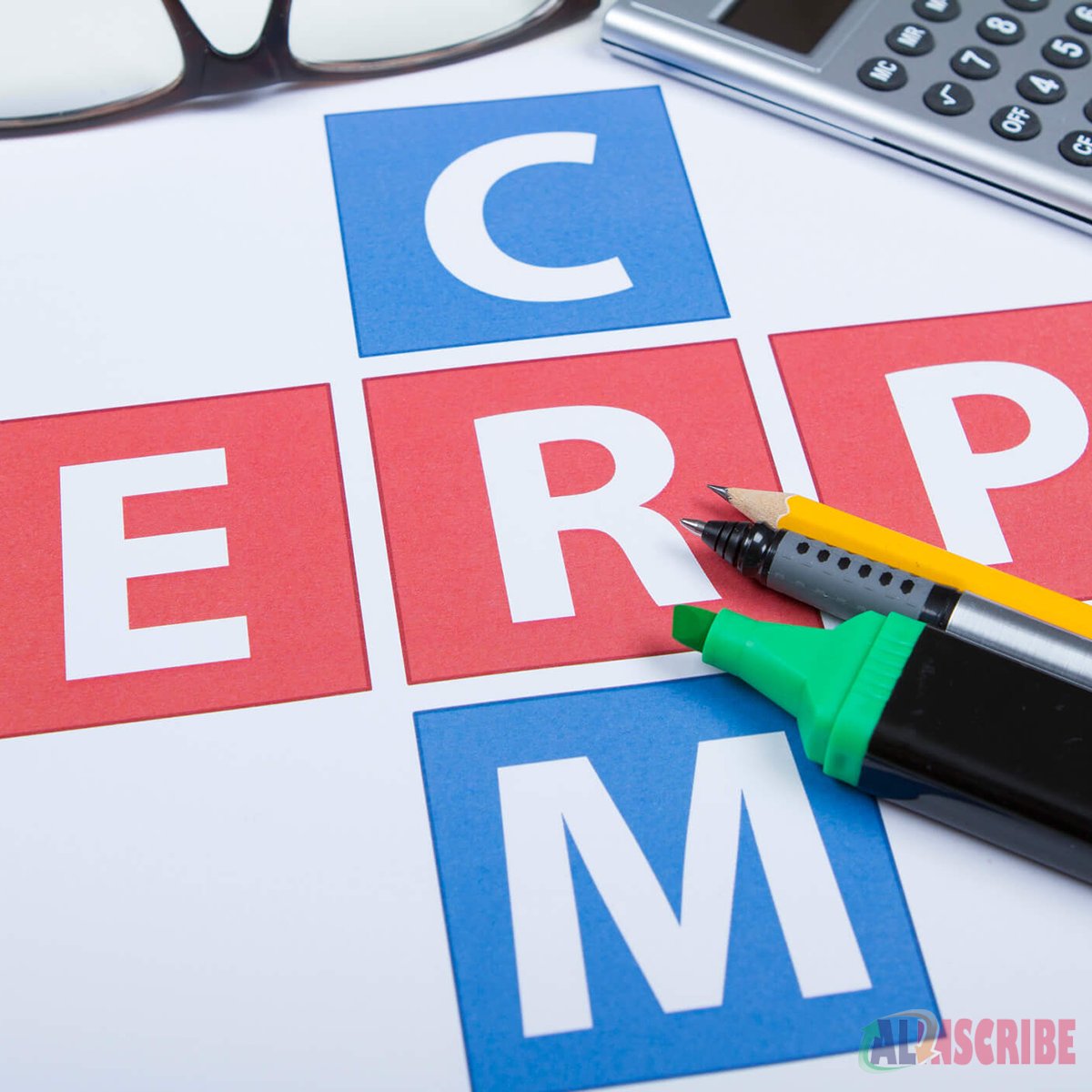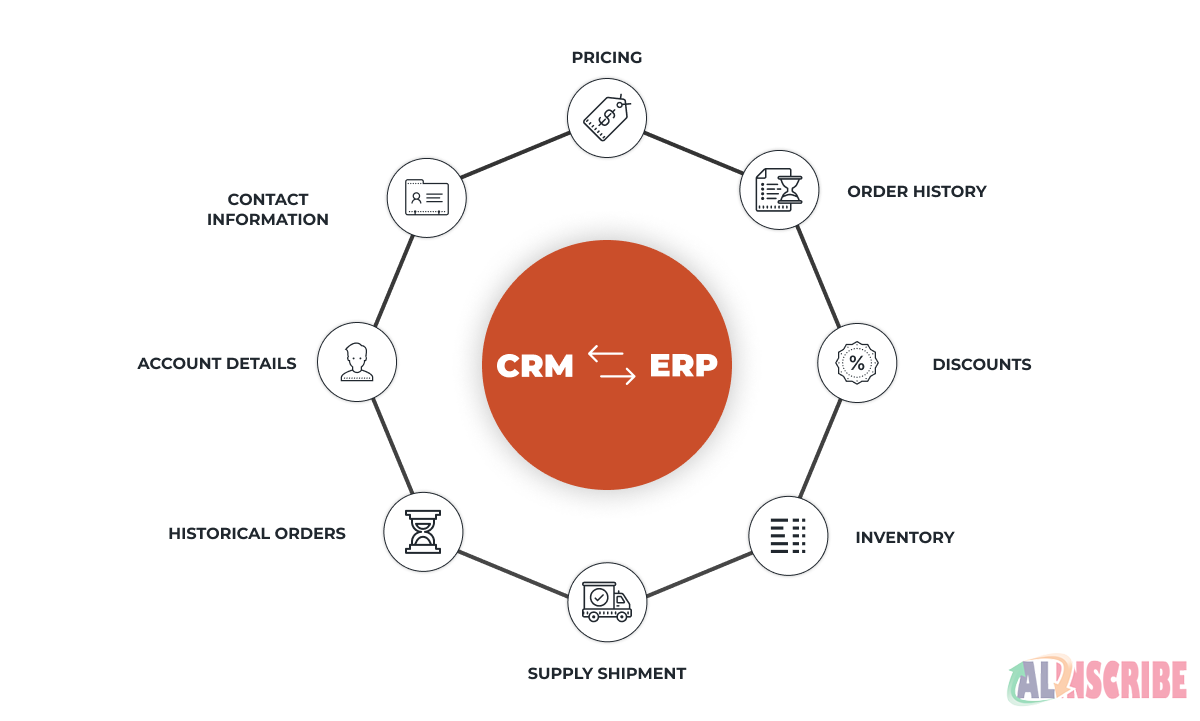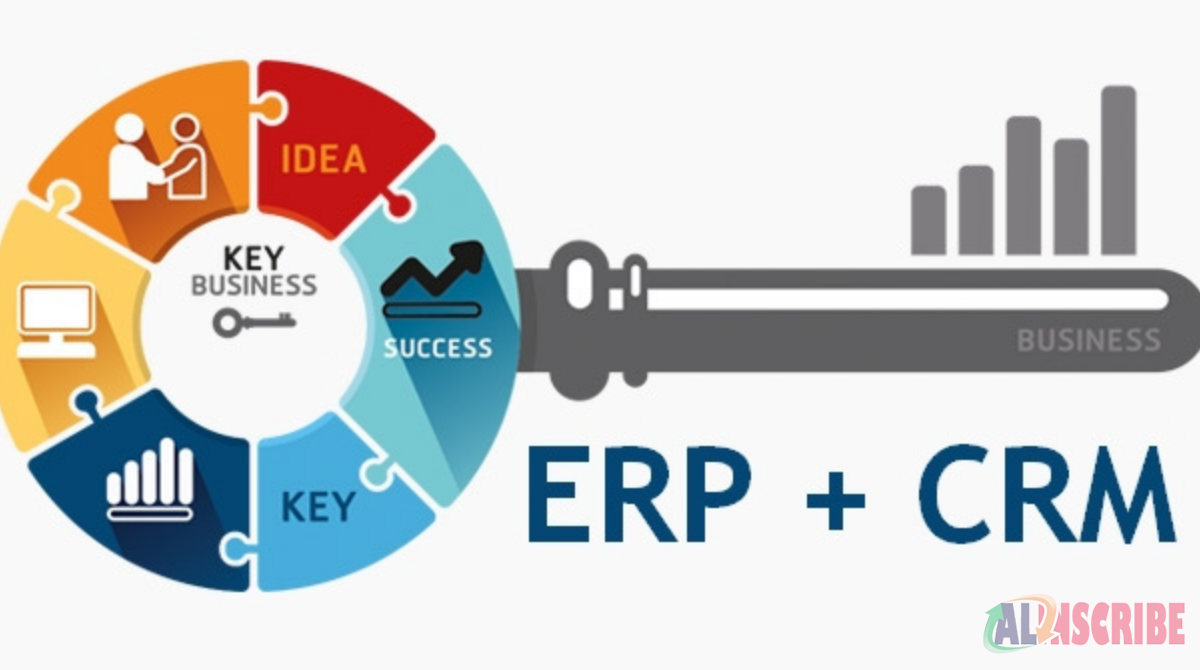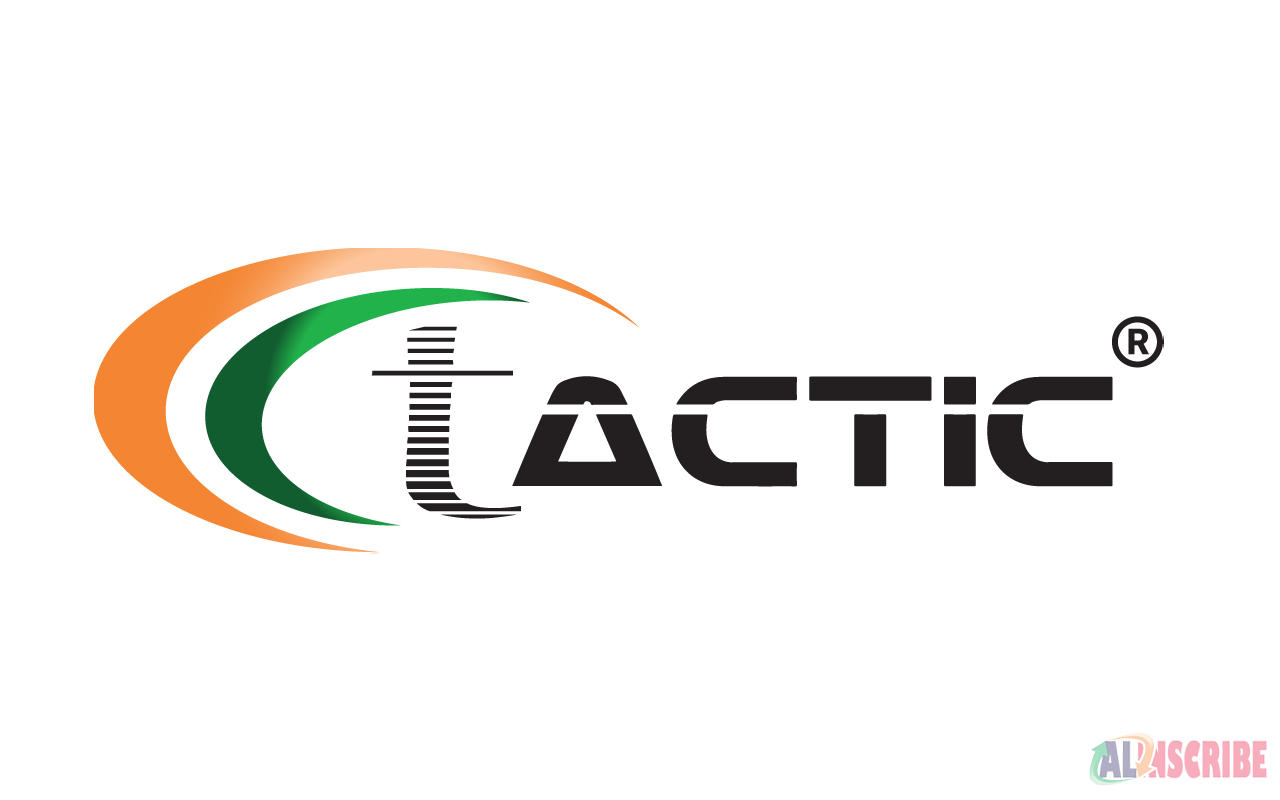CRM Module In ERP - CRM ERP Implementation - Tactic CRM

ERP and CRM solutions are entirely two different aspects, which are interconnected and often integrated with one another. ERP, Enterprise Resource Planning, software is the superset solution while CRM, Customer Relationship Management, software is the subset solution. Hence, having a CRM solution implemented within an ERP solution is quite common.
In this article, we are going to explain the importance of CRM module in ERP systems. We are going to find out the advantages of CRM module in ERP through various means. We are also going to examine the factors keeping consideration of Tactic ERP & CRM. So, keep reading this article to get more insights regarding this topic.
What is a CRM module?
A CRM (Customer Relationship Management) module is feature added to an ERP system, which manages, stores, sorts and organize all the customer related data. CRM module in ERP solutions are capable of streamlining all the customer queries, preferences, previous purchases etc. making it easy for the company to track down any information related to a specific customer.
Even though the module set of ERP solutions vary widely based on the chosen industry and company size, CRM module is one of the most common modules that you can find in almost every ERP solution. The feature set of the CRM module is also mostly similar.

Key features of CRM module in ERP
In this section of the article, we are listing three key features to be presented in CRM module in ERP systems. The additional features are a subject to be based on the ERP solutions that are being chosen and the industry you are operating your business in. the list of the features are provided below,
Contact management
Contact management is certainly one of the most crucial features to be associated with CRM module in ERP. Just as the name suggests, contact management feature allows the users to create an efficient database containing all the contact related information of the customers. This might include address, phone number, basic demographics and so on.
This feature also allows you to segment the customers based on their demographics, preferences, custom fields, purchase history and more. This will help you in targeting your customers for specific marketing campaigns and for delivering advanced personalized experiences.
Lead management
Lead management feature of CRM module in ERP streamlines the process of lead capturing, managing, tracking and converting into customers. This feature allows you to manage the entire life cycle of a lead from the starting to the closing of the sale.
This feature will also help you in saving information of the leads, which register for your services through your website. This feature of CRM module in ERP will automatically save all the information within the ERP system. You can then track them and convert them to paying customers.
Moreover, your customer representative can follow-up with the customers who haven’t returned for a long time. The lead management functionality will notify your customer relationship managers all by themselves.
Interaction tracking
Interaction tracking in CRM module in ERP helps in tracking all the customer interaction that has taken place from the beginning of their customer journey. The process includes recording, tracking, monitoring and managing every interaction the customer has ever made with your company.
Recording and capturing messages, calls, chats, comments, social media interactions and reviews. Basing on these you can set your follow-up strategies to strategies to offer more personalized solutions for those customers. This feature will allow you not to miss any important steps when it comes to managing customer relationships.
Moreover, this features comes with an analytics and reporting function, which will allow you to analyze customer behavior, identify trends and market conditions. Thus, you can always implement better strategies with CRM module in ERP solutions and reach closer to your customer while understanding them better.
Advantages of having CRM Module in ERP solutions
As businesses evolve in today's dynamic and competitive landscape, the integration of a robust CRM Module in ERP system becomes increasingly important. This integration empowers organizations to streamline their operations, optimize customer engagement, and achieve sustainable growth. In this article, we will delve into the significance of a CRM Module in ERP system and how it contributes to overall business success.
360-Degree Customer View
One of the primary advantages of incorporating a CRM Module in ERP system is the ability to create a comprehensive 360-degree view of customers. By consolidating customer data from various touchpoints such as sales, marketing, and customer service, the CRM module provides a holistic perspective. This holistic view allows businesses to understand customer preferences, behaviors, and history, enabling personalized and targeted interactions. As a result, organizations can tailor their products and services to meet the specific needs of individual customers, fostering stronger and more enduring relationships.
Improved Customer Engagement
A CRM Module in ERP system enhances customer engagement by facilitating seamless communication and collaboration across departments. With real-time access to customer information, sales, marketing, and customer service teams can coordinate efforts to deliver a consistent and personalized customer experience. This improved collaboration ensures that customers receive relevant and timely information, leading to higher satisfaction levels and increased loyalty. Effective customer engagement is essential for building brand loyalty and differentiating a business in a crowded marketplace.
Sales Performance Enhancement
The CRM Module in ERP system empowers sales teams by providing tools and insights to streamline their processes. By automating routine tasks, such as lead management and opportunity tracking, sales representatives can focus more on building relationships and closing deals. Additionally, CRM modules often include analytics features that offer valuable insights into sales performance, enabling businesses to identify trends, forecast sales, and make informed strategic decisions. This data-driven approach enhances the overall efficiency and effectiveness of the sales process.
Efficient Marketing Campaigns
Integration of CRM with ERP enables marketing teams to create targeted and personalized campaigns based on customer data. By leveraging customer insights, businesses can tailor their marketing messages to specific segments, increasing the likelihood of successful campaigns. CRM modules also provide analytics and reporting capabilities that allow marketing teams to measure the effectiveness of their campaigns, track customer responses, and refine their strategies accordingly. This integration of marketing and customer data ensures a more efficient and results-driven marketing approach.

Customer Service Excellence
A CRM Module in ERP system is instrumental in delivering exceptional customer service. With access to a centralized customer database, customer service representatives can quickly retrieve relevant information, track customer interactions, and resolve issues more efficiently. This leads to faster response times, increased customer satisfaction, and improved customer retention. Additionally, CRM modules often include features such as case management and service ticketing, further enhancing the ability of customer service teams to provide timely and effective support.
Data-Driven Decision Making
The integration of CRM with ERP facilitates data-driven decision-making at every level of the organization. Business leaders can access comprehensive reports and dashboards that provide insights into customer trends, sales performance, and overall business metrics. This data empowers organizations to make informed decisions, identify growth opportunities, and address challenges proactively. The synergy between CRM and ERP ensures that decision-makers have a complete understanding of the customer lifecycle and can align business strategies accordingly.
Scalability and Flexibility
As businesses grow, the CRM module within an ERP system provides scalability and flexibility to adapt to evolving needs. Whether expanding into new markets, introducing new products, or diversifying services, the CRM module can accommodate these changes. This scalability ensures that the organization's customer management capabilities can keep pace with its growth, providing a foundation for sustainable success.
CRM Module in Tactic ERP & CRM
The CRM module in Tactic ERP & CRM is an advanced addition to the already advanced ERP system. Tactic’s CRM module boasts a plethora of advanced features that you can hardly find in other ERP and CRM solutions. These comprehensive features almost eliminate the need of a third-party CRM solution implementation.
The implementation of CRM module in ERP solution is done in a very integrated manner in the course of Tactic ERP & CRM. This module is capable of integrating all the core business processes with one another effectively without leaving any room for any mistakes. It also streamlines everything and showcases a smooth flow of information within the organization.
Key components of Tactic ERP & CRM’s CRM module
There are 9 different features added to CRM module of Tactic ERP & CRM. These features are listed below with a brief description of each of them.
Third Party Module
The third-party module of Tactic ERP & CRM allows the users to create limitless third parties. You can segment the third-party by choosing the preferred option among three predetermined ones, which are new customer, vendor and prospect. The ERP will automatically add customer codes to the newly created customers or vendors or prospects. You can change or modify those anytime you want.
The B2B companies can add other companies as their customers and use their company logos to easily recognize them. Changing lifecycle of these third-parties are easy as well, it only requires one click. You can also change the preferred language and define discounts or price within the same interface. Moreover, you can also add extra fields as per your customer requirements.
Quotation module
This module allows you to create quotations or commercial proposals just by incorporating data within the predetermined fields. As you create the proposal, Tactic updates the creation in its agenda module automatically, so that you can track it all with just a few clicks.
You can also define the lifecycle of the commercial proposals or quotations by changing the statues. The change of the status include draft, validated, signed or refused. You can also reopen an already-signed or refused proposal with just a click.
The quotations or proposals can also be exported, online signature can be implemented as well.

Sales order module
This module allows you to create sales orders for your customers. A sales order will contain several details, such as customers’ contact information, quantity of the product, price, terms and conditions and so on. These sales orders can be converted into invoices making the entire process of invoice generation easy.
Just like any other feature, sales orders can also be defied based on their lifecycle. But please note that a sales order cannot be deleted if it is already validated.
Shipment module
Shipment module allows the users to create shipments easily and conveniently right from the invoices. It is an effective way of enhancing the user experience of using CRM module in ERP solution.
The shipments can be managed and tracked easily with a few clicks within the same interface. Those can also be reopened as per your need.
Contract module
The contract module in Tactic ERP & CRM solution allows you to manage business contracts easily. You can also manage subscriptions from this module that are directly associated with your customers and vendors. The quotations can also be managed directly from here as well.
You can easily create contract by filling out all the criteria of the predetermined fields. Those can be modified while those are still in the draft format. Once the contracts are validated, those cannot be modified or deleted.
Intervention module
Intervention cards can be considered as an equivalent term for managing certain request that need to be performed without any delay. An organization certainly has some valued customer or members, whose requests need to be processed without causing any delay. These interventions can be managed seamlessly via this intervention module.
Creating an intervention only requires one step, which is to incorporate all the important information within the predetermined fields. You can also add various files to the interventions as per your need.
Tickets module
Tickets module keeps track of customer interaction. Hence, it can be considered as a form of interaction tracking. It keeps a thread of all the queries or issues that have been documented since the start of customer journey. Your customers can create tickets both of internal and external interfaces. And you can easily track those from the ticket module.
Knowledge management module
The process of knowledge management ensures that certain information is available all around the organization. This CRM module in Tactic ERP & CRM system helps in reducing needed time for resolving internal queries as well as queries of the customers. Knowledge base articles can be linked to tickets, so that the customers can read those in times of need.
Partnership management module
This module helps you in managing partnerships with your customers or vendors or other third-parties. You can easily create new partnerships by filling all the predetermined fields. Then you can validate and approve or terminate the same with just a few clicks.
Conclusion
In conclusion, the integration of a CRM module within an ERP system is indispensable for modern businesses seeking to thrive in a competitive landscape. The CRM module acts as a linchpin, connecting various departments and empowering them with a unified view of customer data. This, in turn, leads to improved customer engagement, enhanced sales performance, efficient marketing campaigns, and exceptional customer service. As organizations continue to prioritize customer-centric strategies, the importance of a CRM Module in ERP system becomes increasingly evident, serving as a catalyst for sustainable growth and long-term success.
Article Comments
Similar Articles
Articles Search
Sponsor
There are zero sub-categories in this parent category.
There are zero sub-categories in this parent category.
There are zero sub-categories in this parent category.
















